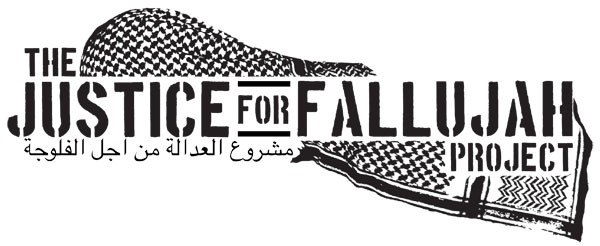After the resistance movement in Fallujah successfully repelled the first U.S. led siege of Fallujah in April of 2004, Fallujah became a symbol of heroism and resistance in Iraq. However, in the United States Fallujah was made into a symbol of terrorism. The U.S. mainstream media described Fallujah as a “hotbed of anti-Americanism” and an “insurgent stronghold”. Fallujans were depicted as extremists. Never were their voices heard, or their opinions about the occupation of their country discussed. Their desires and wishes were considered irrelevent. In November of 2004, the U.S. launched a massive siege on Fallujah that killed somewhere between 800 and 6,000 civilians, forced hundreds of thousands to flee their homes, and left much of the city in ruins. From that point on Fallujah became a symbol to much of the world of the cruelty of U.S. occupation.
The suffering inflicted on Fallujah did not end in 2004. Life for the people who chose to return to their city never improved. The U.S.-led occupation imposed security measures and curfews that made living a normal life in Fallujah impossible. Residents had to struggle to make ends meet in their dilapidated city. Constant security check-points, ID card scans, and arrests only made life harder. And all of this was compounded by a severe lack of basic services, such as electricity, clean water, and health services.
Worst of all, since 2004 there has been a dramatic increase in birth defects, infant mortality, mental retardation, and cancers of all sorts in Fallujah. The birth defects are truly horrifying. Babies have been born with six fingers on each hand, scaly skin, missing limbs, two heads, and there has been one case of a child born with a single eye in the center of his forehead. So far all of the research into the cause of this health crisis--which is prevelent throught Iraq, but most dramatic in Fallujah--suggests that U.S. munitions caused this health crisis by polluting the environment with uranium and other toxic metals. One study has argued that there is “genetic damage” within the population of Fallujah, and the evidence suggests ionizing radiation exposure (most likely from uranium based weapons) as the cause. This has led some to compare Fallujah to Hiroshima and Nagasaki; although the rates of cancers and birth defects are higher in Fallujah. In fact, so many children in Fallujah are now being born horribly deformed or mentally retarded that many women are afraid to try to have families.
The U.S. occupation has had horrible effects on the Iraqi population, but the suffering in Fallujah has been exceptional. Fallujah is to the Occupation of Iraq, what My Lai was to the Vietnam War, and what Hiroshima and Nagasaki were to World War II.
We recognize that, as students, veterans, and working people, we have a responsibility to hold our government accountable, and we acknowledge that justice requires more than just words. We must take action. As long as Fallujah continues to suffer, and until Iraq is free of all unwanted foreign influence, we will do everything in our power to end the imperial policies of our government. We will stand in solidarity with our brothers and sisters in Fallujah, and we will fight to eradicate the culture of militarism and individualism that is destroying us at home. We will not let Fallujah disappear from our collective memory, and we implore our friends and families to never forget what was done there. Fallujah is a symbol of what war and imperialism will always lead to, and it is a symbol of the legacy that we are leaving behind us. Fallujah is there to remind us of what we have done wrong in the past, and to make us think about what we need to do differently in the future.
| Attachment | Size |
|---|---|
| FallujahPrimer.pdf | 4.06 MB |
